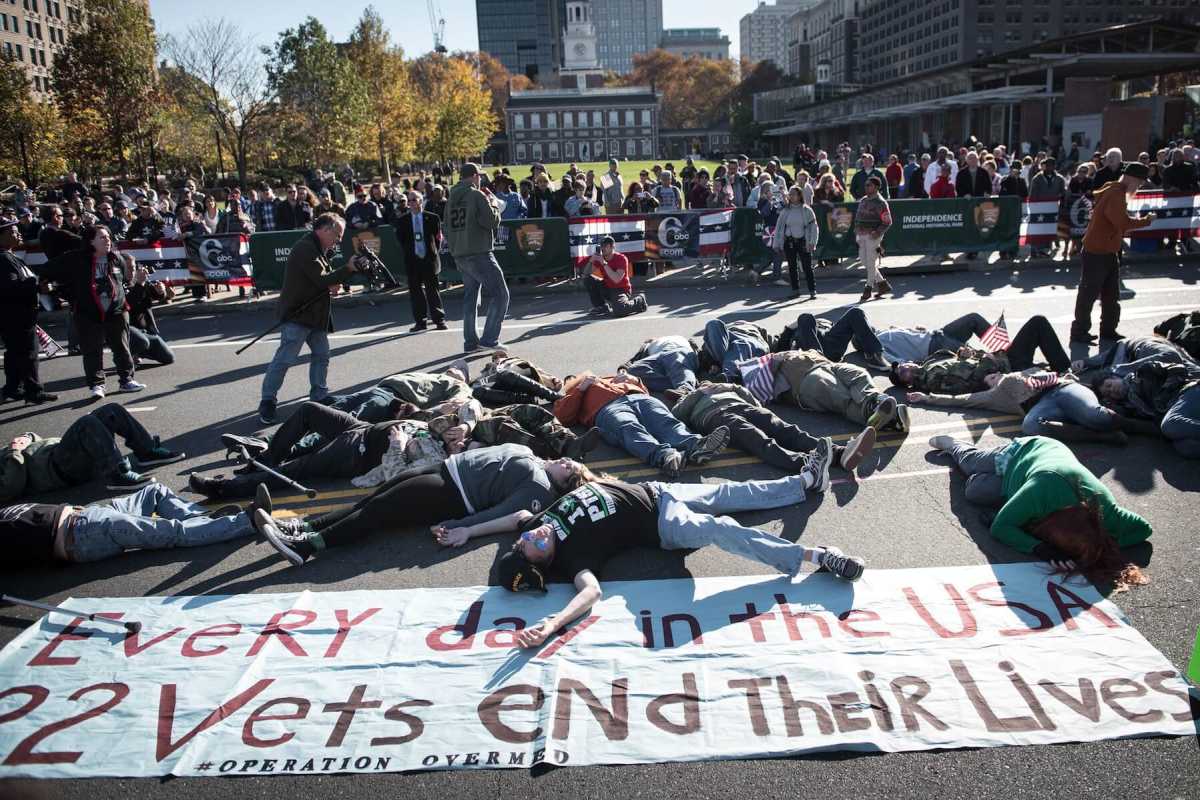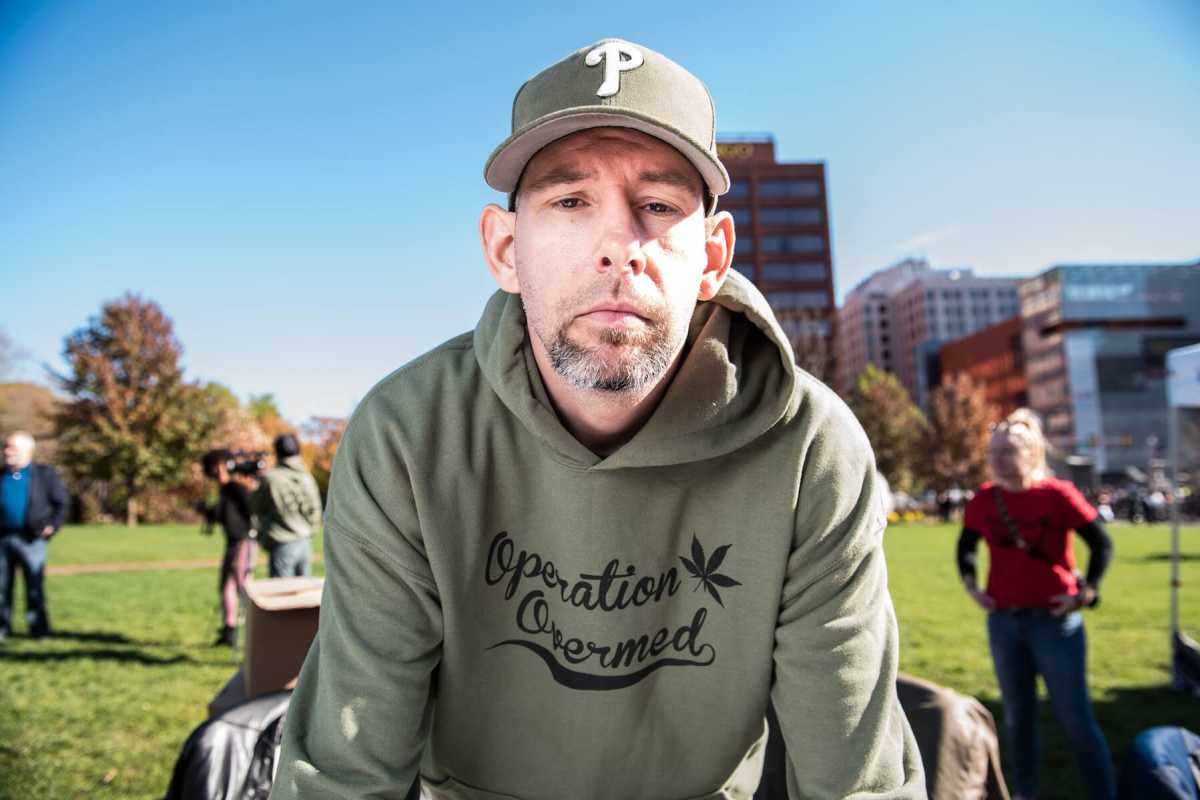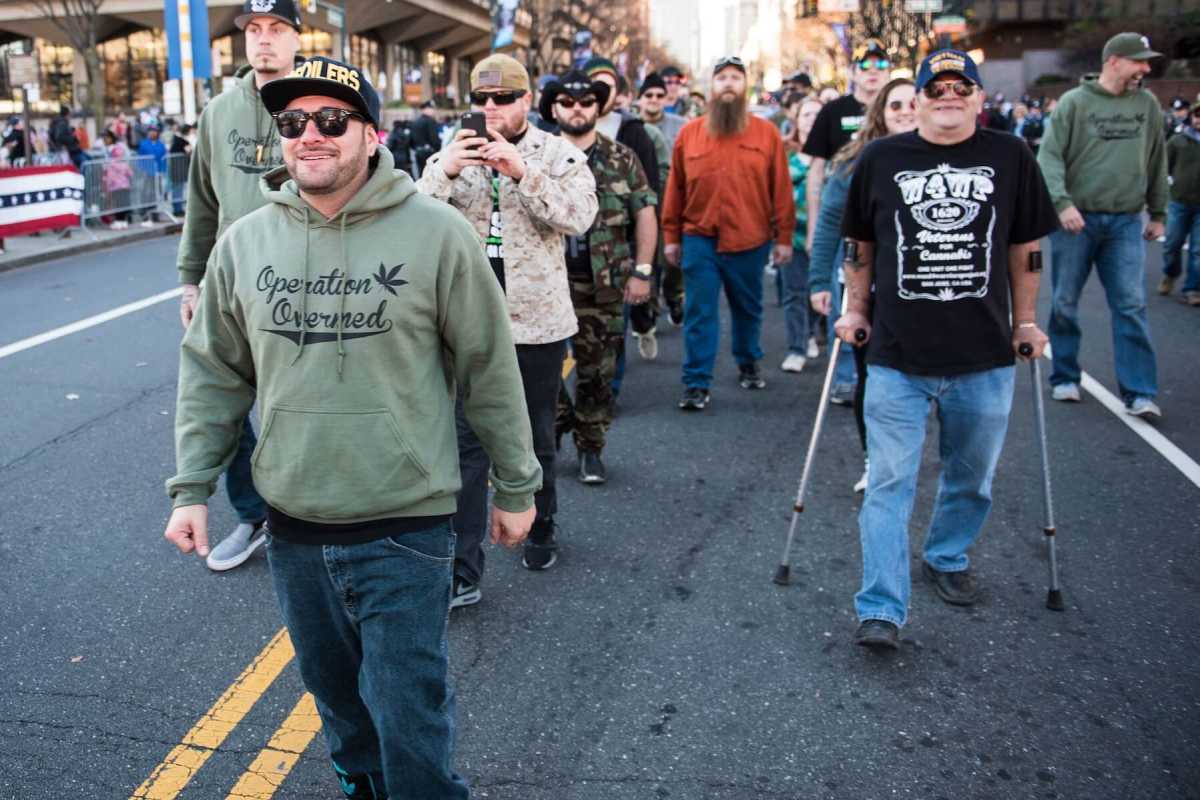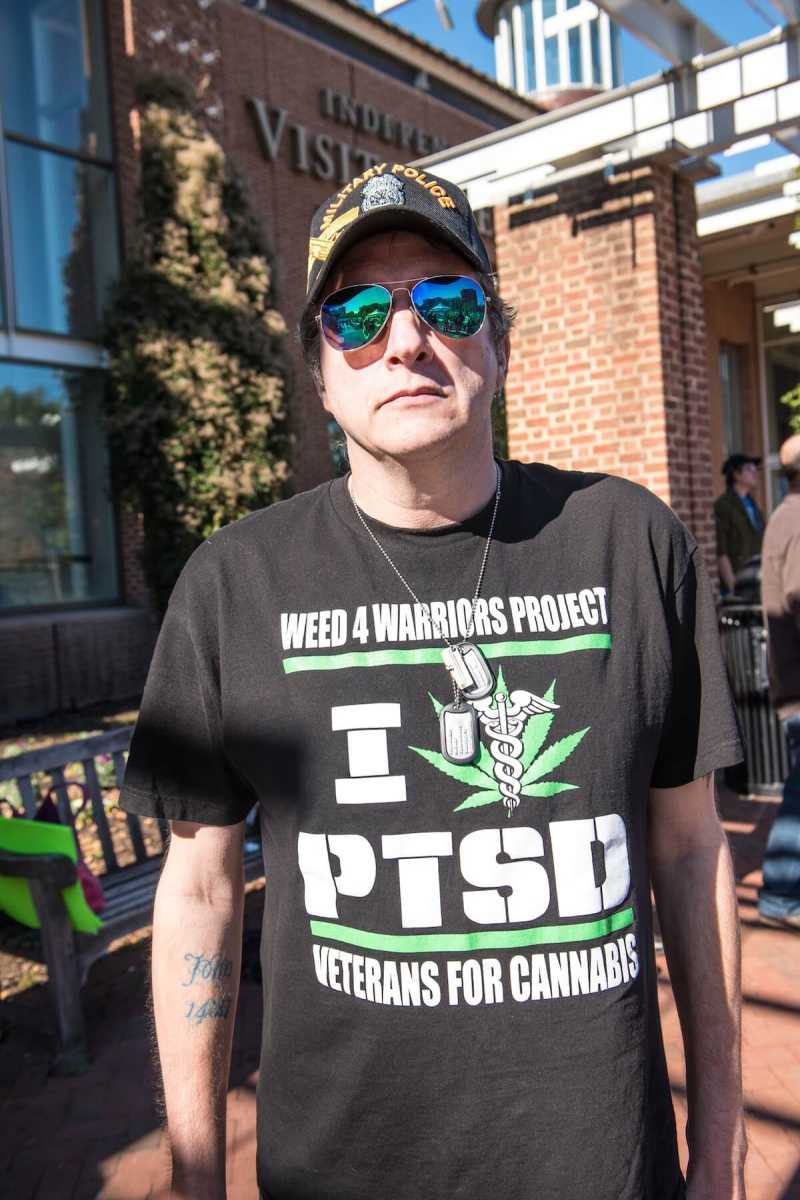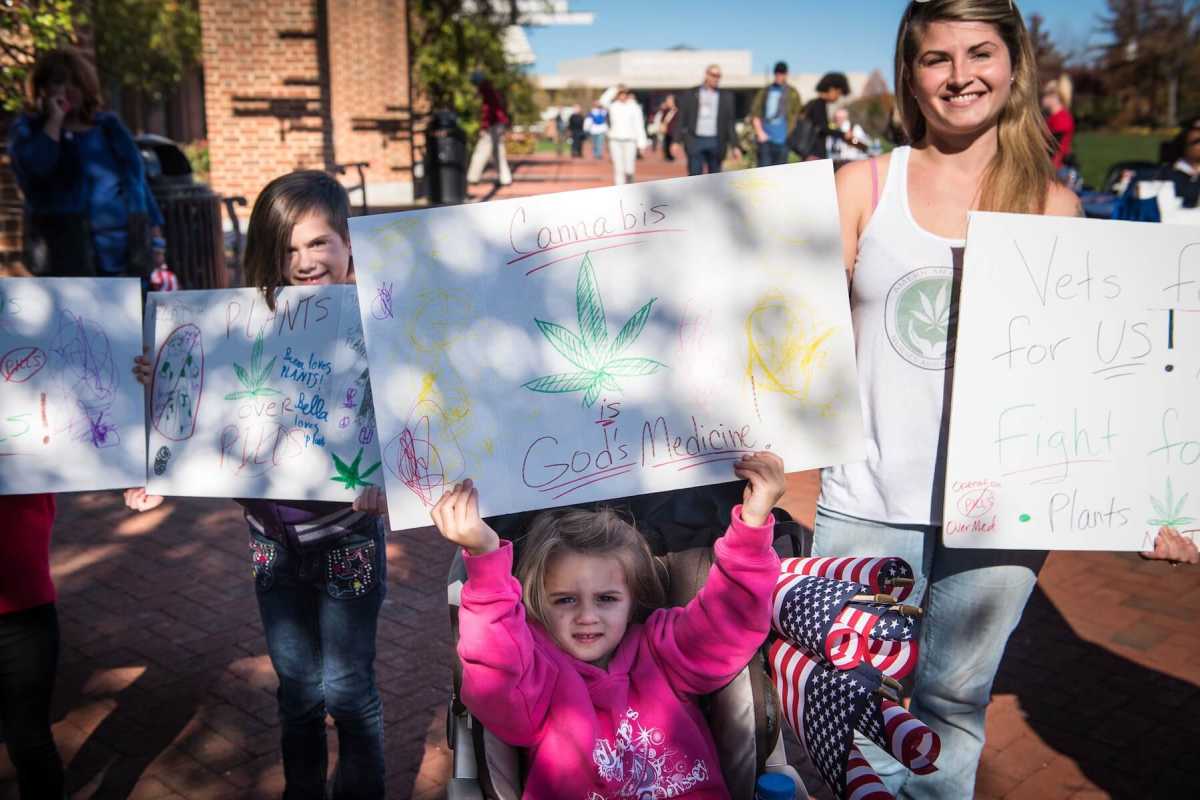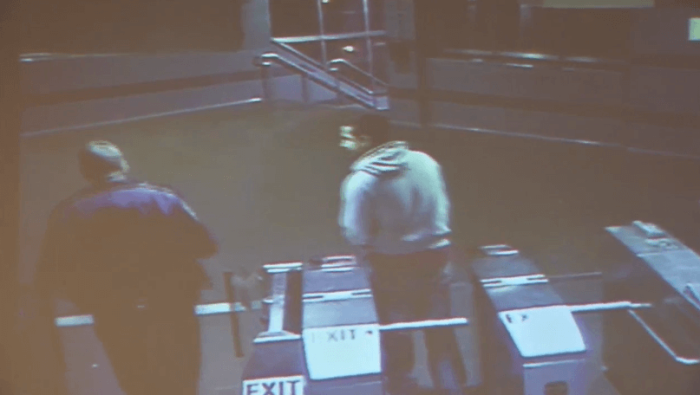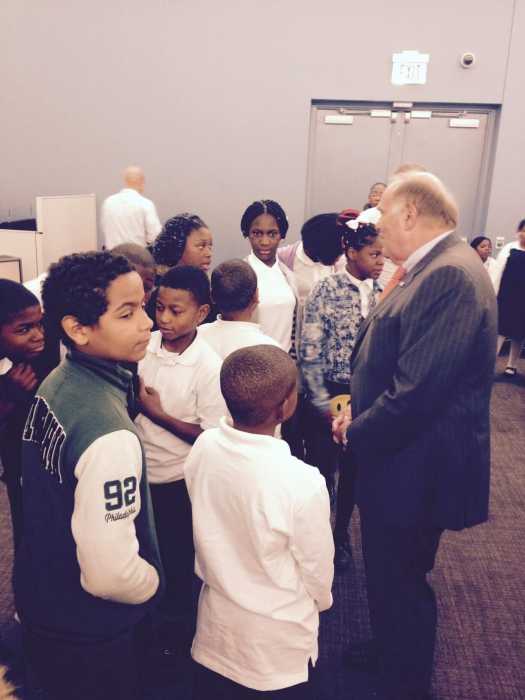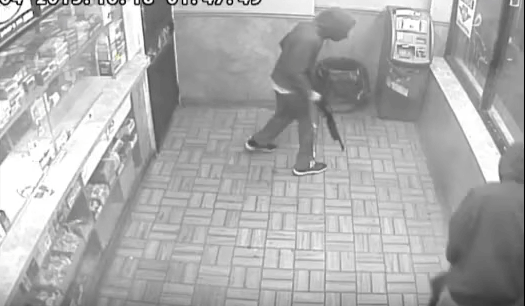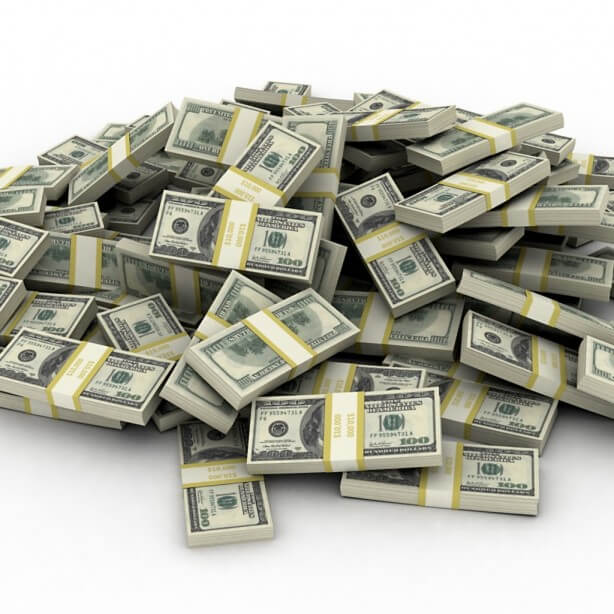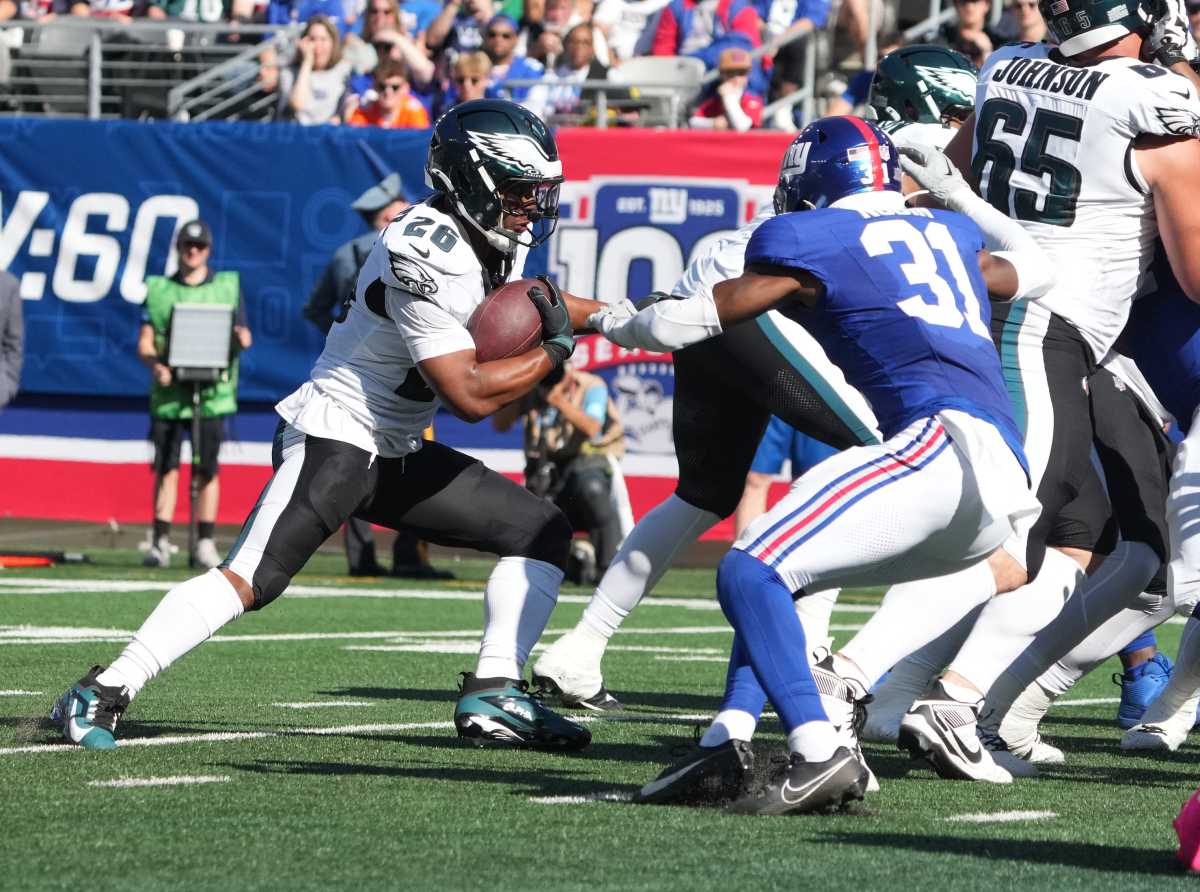On Sunday, after the first ever Philly Veterans Day parade came to an end, organizers announced to boos from the crowd that there would now be a protest.
But the protesters included many veterans –who say they and fellow vetsneed medicinal marijuana to be an option to help them cope with PTSD.
The protests were organized and led byMike Whiter, whoserved in the Marine Corp from 1996 until 2006, when he was honorably medically discharged as a staff sergeant. He was in the first wave of troops in Kosovo, and served in Iraq from 2004 until 2006. When he came back, he said, he struggled to cope. A sales job lasted a week. The Department ofVeterans Affairs(VA) put him on full disability. Now 39, he’s a driving force in a movement to highlight the overmedication of returning troops, and is part of cohort of returning vets that say marijuana has worked better than any of the pills the VA has prescribed. On Sunday, he took part in a protest by veterans seeking changes to marijuana policy. Metro: Tell me about Operation Overmed.
Mike Whiter:I’m a photographer. I was going to school at The Art Institute. I started a photography project because I was having a hard time with models, just, with people, putting them in poses. The instructor told me to shoot what I know. I ended up taking a selfie. It was a picture of myself, in my Marine Corp blouse, holding a handful of pills. It went viral. As a photographer, it’s highlighting that vets are throwing these meds away and turning to alternatives like cannabis, because it’s saving their lives. What kind of meds are we talking about?
For myself, I was on 40 medications over fiveyears. Psychotropic meds, pain medication. Their first line of defense for paid when Iwent to the VAwas methadone. I said I didn’t want to be on methadone. They put me on delayed release morphine. Those are real drugs. Could you function?
No. I sat in my house and drooled on myself for five years, watching the National Geographic channel. I tried to kill myself three times. They had me on methadone and Klonopin at the same time. Little did I know that it could have killed me. Do you think your experience was unique?
I know it’s not. I’ve talked to veterans around the country. You wouldn’t believe how many vets have hit me up since I started Operation Overmed.
How did the morphine and other drugs affect your relations with other people?
I didn’t have relations with other people. I took care of my dog, because he needed me to live.
You had a lot of responsibility in the corps. How do compare the person you were in the corps to the person you were were when you came home?
It’s apples and oranges. When they started putting me on medications, it just numbed me. That’s a stark contrast to being in the Marine Corp, where I was entrusted with 60-plus Marines in my platoon, I had a battalion ammunition account in my name. When I came back, I was going to therapy but I was talking about nothing because I felt nothing. It’s crazy how different I was when I came back.
Why cannabis?
Because it’s the only thing that helps me. The only thing that makes me feel like Mike Whiter. I found it through a documentary on the National Geographic channel. I called up a friend, said can you get me some pot. I hadn’t smiled in so long. Cannabis got me through withdrawal. Does the VA talk to you about marijuana?
I talk to my therapist about marijuana. She’s supportive. I have real conversations and I can get there. These guys are numbing themselves with pills, and they don’t realize, until they get off them that it’s like, ‘Whoa. Here I am.’ It’s very conducive to healing. VA doctors won’t talk about it like medicine. My psychiatrist says, ‘We can’t recommend it, but if it helps you….’ It’s a very fine line.
You talk about marijuana as a medicine, and as a personal choice. Do you think it would work for all vets?
It’s a personal thing. I’d never push anyone to try anything they don’t want to try. The pills are the problem. Marijuana is a tool, but massage is a tool. You have to find what works for you. But therapy is a huge tool. I can’t emphasize that enough. Returning veterans have been a big force for social change for centuries. Should marijuana be legalized? And what do you think the role of veterans’ role of veterans in legalization?
Absolutely.I think veterans are the gateway to federal medical marijuana. We’re the ones that need itfrom the federal legal perspective. It’s legal on the state level for things like epilepsy. But local laws don’t affect VA policy. Below, see video of the die-in and protest on Nov. 8.



